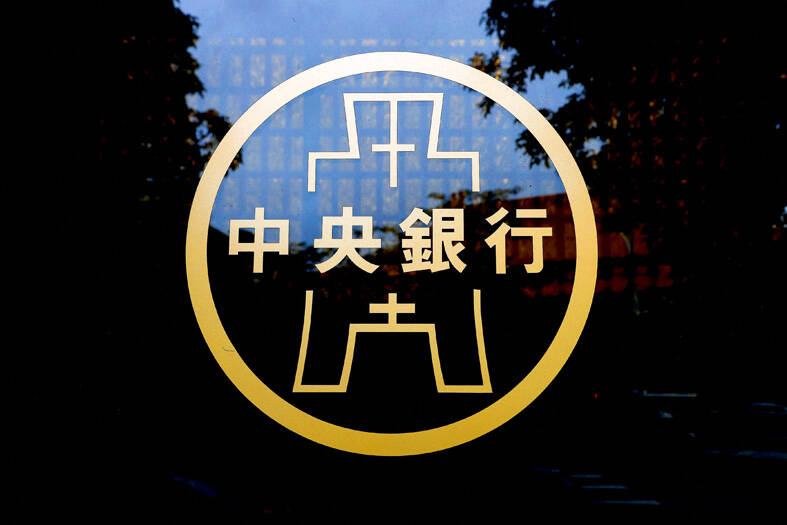Taiwan’s outbound direct investment reached a new high in the second quarter, as tech firms including Taiwan Semiconductor Manufacturing Co (台積電) and Hon Hai Precision Industry Co (鴻海精密) were keen to send funds abroad to expand their operations, the central bank said last week.
Data compiled by the central bank showed that outbound direct investment during the April-to-June period totaled US$10.7 billion, up from US$2.99 billion in the same period last year.
Taiwan’s net fund outflow in the second quarter hit US$14.57 billion in its financial account, which measures the flow of direct investment and portfolio investment, the central bank said, adding that the second quarter marked the 56th consecutive quarter of net fund outflows.

Photo: Reuters
The direct investment account recorded a net asset increase of US$6.54 billion in the second quarter. Of the components in the direct investment account, outbound direct investment by residents and inward direct investment by nonresidents posted net increases of US$10.7 billion and US$4.16 billion respectively, it said.
Taiwan’s portfolio investment account in the second quarter saw a net asset increase of US$13.06 billion. Of the components in the portfolio investment account, residents’ portfolio investment abroad registered a net increase of US$16.05 billion in the wake of a rise in holdings of outbound debt securities, the central bank said.
In addition, nonresidents’ portfolio investment posted a net increase of US$2.99 billion, mainly due to a rise in Taiwanese equity holdings by foreign investors, it added.
Meanwhile, Taiwan’s current account, which mainly measures the exports and imports of the nation’s merchandise and services, registered a surplus of US$21.82 billion in the three-month period.
The goods trade surplus fell by US$1.22 billion from a year earlier to US$20.82 billion, on the back of an increase in imports of integrated circuits, and information and communications technology products.
Meanwhile, the services account recorded a deficit of US$4.06 billion, up from a US$2.29 billion deficit a year ago, largely due to an increase in travel expenses overseas, the central bank said.
In the first half of this year, Taiwan’s financial account saw a US$43.59 billion net fund outflow, while its current account recorded a surplus of US$51.49 billion, the central bank said.
Over the past 56 quarters, accumulated net fund outflows hit almost NT$26.58 trillion (US$850 billion).
Addressing concerns that investors would keep moving funds out of the country and into US dollar-denominated assets, the central bank said net fund outflows were common among countries such as Taiwan, which have long-term current account surpluses.
Japan, Singapore, South Korea and Germany all have long-term current account surpluses and tend to record net financial account outflows, the central bank said.

Sweeping policy changes under US Secretary of Health and Human Services Robert F. Kennedy Jr are having a chilling effect on vaccine makers as anti-vaccine rhetoric has turned into concrete changes in inoculation schedules and recommendations, investors and executives said. The administration of US President Donald Trump has in the past year upended vaccine recommendations, with the country last month ending its longstanding guidance that all children receive inoculations against flu, hepatitis A and other diseases. The unprecedented changes have led to diminished vaccine usage, hurt the investment case for some biotechs, and created a drag that would likely dent revenues and

Global semiconductor stocks advanced yesterday, as comments by Nvidia Corp chief executive officer Jensen Huang (黃仁勳) at Davos, Switzerland, helped reinforce investor enthusiasm for artificial intelligence (AI). Samsung Electronics Co gained as much as 5 percent to an all-time high, helping drive South Korea’s benchmark KOSPI above 5,000 for the first time. That came after the Philadelphia Semiconductor Index rose more than 3 percent to a fresh record on Wednesday, with a boost from Nvidia. The gains came amid broad risk-on trade after US President Donald Trump withdrew his threat of tariffs on some European nations over backing for Greenland. Huang further

CULPRITS: Factors that affected the slip included falling global crude oil prices, wait-and-see consumer attitudes due to US tariffs and a different Lunar New Year holiday schedule Taiwan’s retail sales ended a nine-year growth streak last year, slipping 0.2 percent from a year earlier as uncertainty over US tariff policies affected demand for durable goods, data released on Friday by the Ministry of Economic Affairs showed. Last year’s retail sales totaled NT$4.84 trillion (US$153.27 billion), down about NT$9.5 billion, or 0.2 percent, from 2024. Despite the decline, the figure was still the second-highest annual sales total on record. Ministry statistics department deputy head Chen Yu-fang (陳玉芳) said sales of cars, motorcycles and related products, which accounted for 17.4 percent of total retail rales last year, fell NT$68.1 billion, or

HSBC Bank Taiwan Ltd (匯豐台灣商銀) and the Taiwan High Prosecutors Office recently signed a memorandum of understanding (MOU) to enhance cooperation on the suspicious transaction analysis mechanism. This landmark agreement makes HSBC the first foreign bank in Taiwan to establish such a partnership with the High Prosecutors Office, underscoring its commitment to active anti-fraud initiatives, financial inclusion, and the “Treating Customers Fairly” principle. Through this deep public-private collaboration, both parties aim to co-create a secure financial ecosystem via early warning detection and precise fraud prevention technologies. At the signing ceremony, HSBC Taiwan CEO and head of banking Adam Chen (陳志堅)